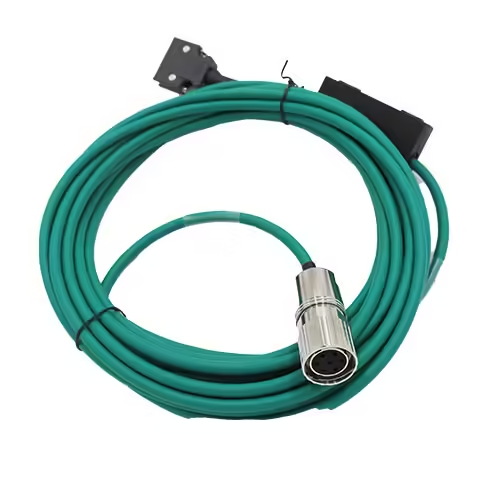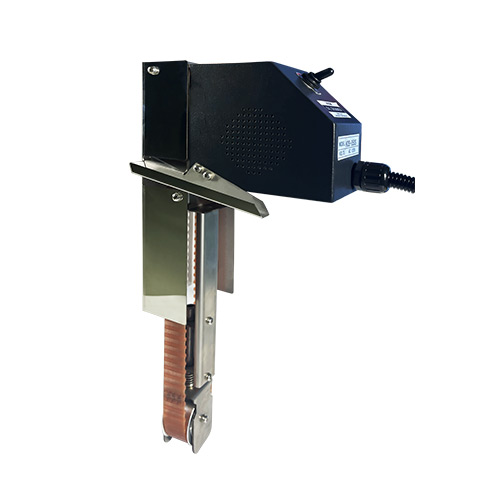-
WhatsAPP: +86 18706448138
-
Tengzhou, Shandong, China

Machine Operation Panels: Benefits and Applications
Machine operation panels integrate advanced technologies to provide intuitive controls and seamless communication with automated systems.
Table of Contents
Introduction

In the rapidly evolving landscape of industrial automation, machine operation panels have emerged as critical components for enhancing efficiency and control in various sectors. These sophisticated interfaces serve as the primary point of interaction between operators and complex machinery, streamlining processes and improving operational precision. Machine operation panels integrate advanced technologies to provide intuitive controls, real-time data monitoring, and seamless communication with automated systems. This blog explores the multifaceted benefits and diverse applications of these panels, shedding light on their transformative impact across industries.
As manufacturing and production environments become increasingly digitized, the demand for user-friendly, reliable, and versatile control systems continues to grow. Machine operation panels address this need by offering customizable interfaces that cater to specific operational requirements. From factories to healthcare facilities, these panels are redefining how operators interact with equipment, ensuring both productivity and safety. In this comprehensive guide, we’ll delve into their key advantages, practical applications, and emerging trends, providing insights for businesses looking to optimize their operations.
The Role of Machine Operation Panel in Modern Industry
Machine operation panel act as the nerve center for controlling and monitoring industrial equipment. These panels typically feature touchscreens, buttons, and displays that allow operators to input commands, monitor performance metrics, and troubleshoot issues in real time. By centralizing control functions, they reduce the complexity of managing sophisticated machinery, making them indispensable in environments where precision and speed are paramount.
In industries such as manufacturing, logistics, and energy, machine operation panel enable operators to oversee multiple processes simultaneously. For instance, in a factory setting, a single panel can control robotic arms, conveyor belts, and quality assurance systems, all while providing real-time feedback on production rates and system health. This centralized approach minimizes errors and enhances decision-making, allowing businesses to maintain high standards of efficiency and reliability.
Key Benefits of Using Machine Operation Panels

The adoption of machine operation panels brings a host of benefits that directly impact operational success. Below, we explore some of the most significant advantages these systems offer.
Enhanced Operational Efficiency
Machine operation panels streamline workflows by providing operators with quick access to critical functions. Their intuitive interfaces reduce the learning curve for new users, enabling faster onboarding and minimizing downtime. By automating routine tasks and offering real-time data, these panels allow operators to focus on high-value activities, boosting overall productivity.
Improved Safety and Error Reduction
Safety is a top priority in any industrial setting, and machine operation panel contribute significantly to safer workplaces. With features like emergency stop buttons, real-time alerts, and diagnostic tools, these panels help operators identify and address potential issues before they escalate. Additionally, their precise control mechanisms reduce human error, ensuring consistent and accurate operation of machinery.
Customization for Specific Needs
One of the standout features of machine operation panel is their adaptability. Manufacturers can tailor these panels to meet the unique requirements of their equipment or industry. Whether it’s adjusting the interface for specific workflows or integrating with existing software, these panels offer unparalleled flexibility, making them suitable for a wide range of applications.
Applications of Machine Operation Panels Across Industries
Machine operation panels are versatile tools that find applications in numerous sectors. Their ability to integrate with various systems and provide user-friendly interfaces makes them a valuable asset in diverse environments.
Manufacturing and Production
In manufacturing, machine operation panel are used to control assembly lines, robotic systems, and CNC machines. They enable operators to monitor production metrics, adjust settings, and troubleshoot issues without interrupting workflows. For example, in automotive manufacturing, panels are used to manage complex assembly processes, ensuring precision and consistency.
Healthcare and Medical Equipment
The healthcare sector relies on machine operation panels to control sophisticated medical devices, such as diagnostic imaging systems and robotic surgical tools. These panels provide precise control and real-time feedback, enabling healthcare professionals to perform complex procedures with confidence. Their user-friendly designs also ensure that medical staff can operate equipment efficiently, even under high-pressure conditions.
Energy and Utilities
In the energy sector, machine operation panel are integral to managing power generation and distribution systems. From controlling wind turbines to monitoring electrical grids, these panels provide operators with the tools needed to maintain system stability and efficiency. Their ability to integrate with IoT systems also enables remote monitoring, reducing the need for on-site interventions.
Key Features of Machine Operation Panels
To understand why machine operation panels are so effective, it’s essential to examine their core features. The following table highlights some of the critical components and functionalities that make these panels indispensable in modern industries.
| Feature | Description | Benefit |
|---|---|---|
| Touchscreen Interfaces | High-resolution displays with multi-touch capabilities for intuitive control. | Simplifies operation and reduces training time. |
| Real-Time Data Monitoring | Displays live performance metrics and system diagnostics. | Enables proactive maintenance and quick decision-making. |
| Connectivity Options | Supports integration with IoT, PLCs, and other industrial systems. | Enhances interoperability and system scalability. |
| Durable Design | Built to withstand harsh environments, including dust, moisture, and vibration. | Ensures long-term reliability in challenging conditions. |
| Customizable Software | Allows tailored interfaces and workflows to suit specific applications. | Increases flexibility and user satisfaction. |
This table illustrates how machine operation panels combine advanced technology with practical functionality to meet the needs of diverse industries. Their robust design and versatile features make them a cornerstone of modern automation.
Trends Shaping the Future of Machine Operation Panels

The evolution of machine operation panels is closely tied to advancements in technology. Several emerging trends are shaping their development and expanding their capabilities.
Integration with IoT and Industry 4.0
The rise of Industry 4.0 has accelerated the integration of machine operation panels with IoT ecosystems. By connecting panels to cloud-based platforms, businesses can collect and analyze data from multiple sources, enabling predictive maintenance and process optimization. This connectivity also supports remote monitoring, allowing operators to manage systems from anywhere in the world.
Adoption of AI and Machine Learning
Artificial intelligence (AI) and machine learning are transforming how machine operation panels function. These technologies enable panels to learn from operational data, predict potential issues, and suggest optimizations. For instance, an AI-powered panel might detect patterns in equipment performance and recommend adjustments to prevent downtime, enhancing overall efficiency.
Focus on User Experience
As industries prioritize operator efficiency, manufacturers are designing machine operation panels with enhanced user experiences in mind. Features like customizable dashboards, voice control, and augmented reality displays are becoming more common, making it easier for operators to interact with complex systems.
Challenges in Implementing Machine Operation Panels
While machine operation panels offer significant benefits, their implementation can present challenges that businesses must address to maximize their value.
High Initial Costs
The upfront cost of installing machine operation panels can be substantial, particularly for small and medium-sized enterprises. However, the long-term benefits, such as reduced downtime and improved productivity, often outweigh these initial expenses. Businesses can mitigate costs by choosing scalable solutions that allow gradual implementation.
Training and Skill Requirements
Adopting advanced machine operation panels may require operators to acquire new skills or undergo training. While modern panels are designed to be user-friendly, complex systems may still demand specialized knowledge. Providing comprehensive training programs can help bridge this gap and ensure smooth adoption.
Best Practices for Maximizing the Value of Machine Operation Panels

To fully leverage the potential of machine operation panels, businesses should follow best practices that enhance their effectiveness and longevity.
Regular Maintenance and Updates
Routine maintenance and software updates are critical to keeping machine operation panels in optimal condition. Regular checks can prevent hardware failures, while software updates ensure compatibility with new technologies and security protocols.
Collaboration with Suppliers
Working closely with panel suppliers can help businesses customize their systems to meet specific needs. Suppliers can provide insights into the latest features and technologies, ensuring that panels remain cutting-edge and aligned with industry standards.
Operator Feedback Integration
Incorporating feedback from operators can lead to improvements in panel design and functionality. By understanding the challenges operators face, businesses can refine interfaces and workflows to enhance usability and efficiency.
Conclusion
Machine operation panels are revolutionzingen the backbone of modern industrial automation, offering unparalleled control, efficiency, and safety. Their ability to streamline complex processes, provide real-time insights, and adapt to diverse applications makes them a vital asset across industries. As technology continues to advance, these panels are poised to play an even more significant role in the future of automation. To explore how these panels can transform your operations, contact us today to discuss tailored solutions for your business.
FAQ
What are machine operation panels?
Machine operation panels are interfaces that allow operators to control and monitor industrial equipment, featuring touchscreens, buttons, and displays for intuitive operation.
What industries use machine operation panels?
They are used in industries such as manufacturing, healthcare, energy, logistics, and agriculture, among others, to manage complex machinery and systems.
Can machine operation panels be customized?
Yes, these panels can be tailored to meet specific operational needs, with customizable interfaces, software, and connectivity options.


